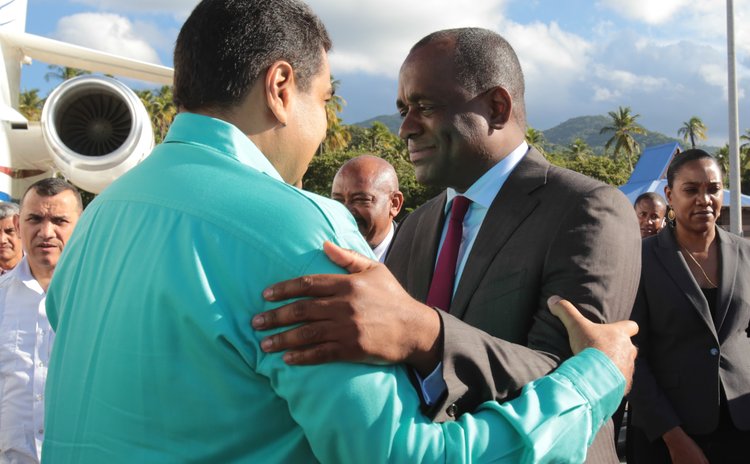Peas in a pod
A former member of the Dominica Labour Party compares Venezuela today and Dominica

The warning is stark, the prediction is frightening, the concerns are disturbing.
Dominica is troublingly becoming a mirror of Nicolas Maduro's Venezuela, with democracy being tortured, and its life being squeezed out of it, one political observer says.
Many international observers look at the current turmoil in the oil-rich South American nation and conclude that democracy has died under Maduro.
They point to, among other signs, meddling by the pro-government electoral commission which in 2015 blocked three opposition legislators from taking their seats after the opposition had won a super majority, the commission's indefinite suspension of local and state elections in October 2015, the 30 July election to choose delegates to write a new constitution, and Maduro's refusal to even acknowledge the opposition.
All these actions, the observers say, erode the fundamental principles of democratic government and destroy accountability.
"Maduro is forming the fool. He needs to realise he cannot govern alone, he needs to share power with the opposition until the end of his term," one local observer who did not wish to be identified tells The Sun.
Alarmingly, prime minister Roosevelt Skerrit seems to be walking a similar path, torturing democracy and setting up the country to become a one party state, one political activists claims.
And, he warns, it will not be long before Dominica becomes the next Venezuela - a banana leaf republic with a dictator leading a regime, not a government.
"Skerrit might be trying to take some ideas from Maduro . . . to not engage the opposition, they call parliament very seldom," this observer, a former Dominica Labour Party (DLP) executive, tells The Sun.
"He does not want electoral reform. He only wants to have the advantage and that has in itself a mechanism for instability. He is putting into place all the mechanisms of a one party state. He has [destroyed] the institutions of accountability. One of them is the integrity commission. The man is not prepared to be accountable to the very people who elected him. He thinks Dominica is a fiefdom and he can do whatever he wants."
Critics of the Maduro government contend the Venezuelan leader plans to use the legislator elected last week to assume total control over the national assembly and to pursue enemies.
As proof, they point to the rounding up of two leading political opponents two days after the vote.
Critics here say this is scarily similar to the procession of arrests of leading opposition politicians and activists in the days following the 7 February protest by the United Workers Party.
"He is also trying to intimidate his political opponents, using the police to intimidate his opponents, and anytime to you get to that stage you're on the road to a dictatorship and it will bring instability just like Venezuela," the former DLP executive says.
"He wants to have a monopoly on the state without having a level playing field, and it's happening more so since 2013, and the electoral commission is doing his bidding. They refuse to put in place the mechanism for electoral reform and that is a prescription for chaos.
"And the other thing is that law he attempted to pass in parliament, is another example of the move towards dictatorship," he says, a reference to the aborted attempt to amend the House Of Assembly Election Act to make it legal to import voters.
Skerrit withdrew the bill shortly before it was to go before parliament on 23 May, after the opposition protested.
Many of the prime minister's fiercest critics, including Athie Martin, say the signs have been clear that Skerrit wants to rule, not govern, to be the supreme who seemingly runs every ministry and praised by his ministers at every opportunity.
However, his most outspoken supporter bar none, the lawyer Tony Astaphan, ridicules suggestions that Skerrit is running a regime.
"The use of the word regime is based on fake news and alternative facts and to date they have not been able to provide any evidence to prove it," he tells The Sun.
"The Caribbean . . . always has a history of very charismatic, strong leaders who have won the support of the people on multiple occasions, and nobody ever accused them of building a regime."
This is unlikely to satisfy the critics who believe Maduro has finally killed democracy in Venezuela and Skerrit is doing the same here.




